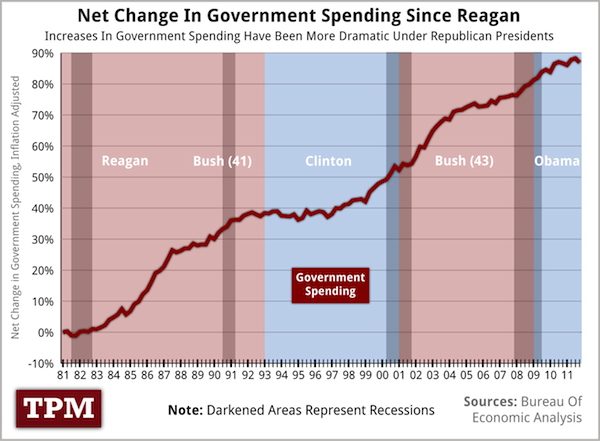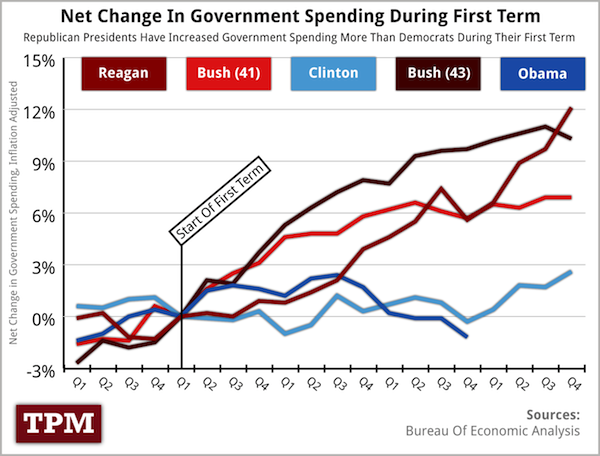Fellow Berean Jeff Haymond responded to a post I made on election day on what I see as very distinct similarities between Republicans and Democrats on economic issues. Rather than commenting on Jeff’s post by responding in the text box underneath his post I’d like to include a couple of diagrams. In order to include those diagrams I’m going to make the response here – but this is a response to Jeff’s perspective. I do believe there are some substantive differences between the parties, and I will vote Republican! However, I do believe most of the perceived differences (particularly in dealing with economic policy) are mere rhetoric designed to create perceived differences when the actual differences not really that great.

In the conclusion to his first paragraph, Haymond says there are “…profound differences between the parties, sometimes more so sometimes less so.” When it comes to economic policy, candidates want to make you think there are big differences between the two parties, but what they actually do is really not distinguishable by party. The differences may seem big, But that is only in the limited middle-of-the-road context in the United States. I’d like to borrow a couple of diagrams from the liberal blog talkingpointsmemo. Over the past 30+ years the federal government has grown independent of the party affiliation of the governing administration.
Haymond believes that by saying “Barack Obama” he has shown that democratic economic policies are substantially different than Republican economic policies. To this I could just as easily say “Mitt Romney”. And no, I can see no assurance that Mr. Romney’s policies would have been better than Mr. Obama’s. The stew might’ve had two more carrots and one less potato but the basic smell would’ve been the same. I do think you can say that Pres. Obama has pushed us down the road to Democratic Socialism more rapidly than Mr. Romney might have, but they both are on the same road.
As to Haymond’s argument that Republican cronyism is better than Democratic cronyism, my response is that both the Republican and Democratic version are part of a political vision that usurps power from the electorate and places it in the halls of federal government. The Democrats may say that they’re wanting to use government as a force for positive good and Republicans may say they want people to keep more of the wealth they created, but both parties are rewarding that individual firms that contributed to their campaigns. Neither party is consistent with the free enterprise perspective where the market determines winners and losers.
 Bert Wheeler
Bert Wheeler
 Jeff Haymond
Jeff Haymond
 Marc Clauson
Marc Clauson
 Mark Caleb Smith
Mark Caleb Smith
 Tom Mach
Tom Mach